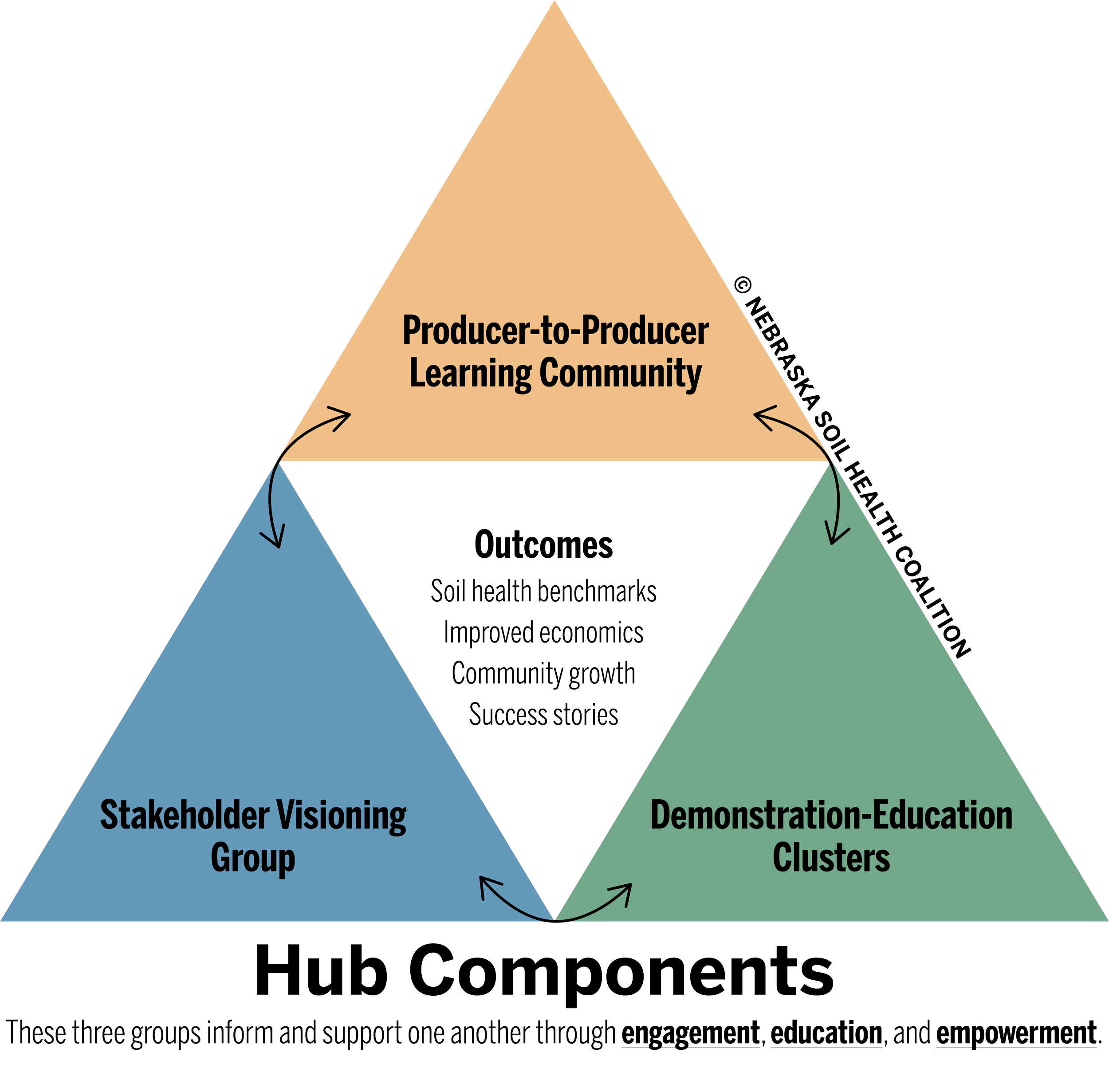
Our Strategy
Healthy soils are the foundation of productive, sustainable agricultural systems and thriving communities. Managing for soil health helps producers increase carbon sequestration, reduce greenhouse gas emissions, increase water infiltration and increase drought resilience, enhance water quality, boost crop yield and nutrient availability, and provide wildlife and pollinator habitat. However, even with this widely available information less than 7% cropland in the United States is managed using the basic soil health practice of cover cropping. (Refer to nrcs.usda.gov)
Approach
The Nebraska Soil Health Coalition seeks to increase soil health management systems by utilizing proven and effective economics, sound research and systemic education. We will develop a broad-based coalition of stakeholders that are impacted by agriculture and influence the productivity of our state. We also strive to help rural communities succeed when the dynamics of rural-urban growth increasingly create a range of needs and stress core values.
Producers and landowners stress that reliable and locally relevant information is needed to understand the business case to make a change in their production system. Oftentimes, the risk of economic loss can be too great and hinder large-scale management changes. We will provide a support and framework to address fundamental needs.
Producers need tools and training to measure improvements in soil health and how their changed production practices are impacting the baseline of their soil organic matter, water infiltration, etc.. The Soil Health Institute provides additional support for our steps:
"After adoption of changes in the management system the producer must be able to evaluate the impact on productivity and improvements to related natural resources to support the business case."
(Refer to soilhealthinstitute.org)

